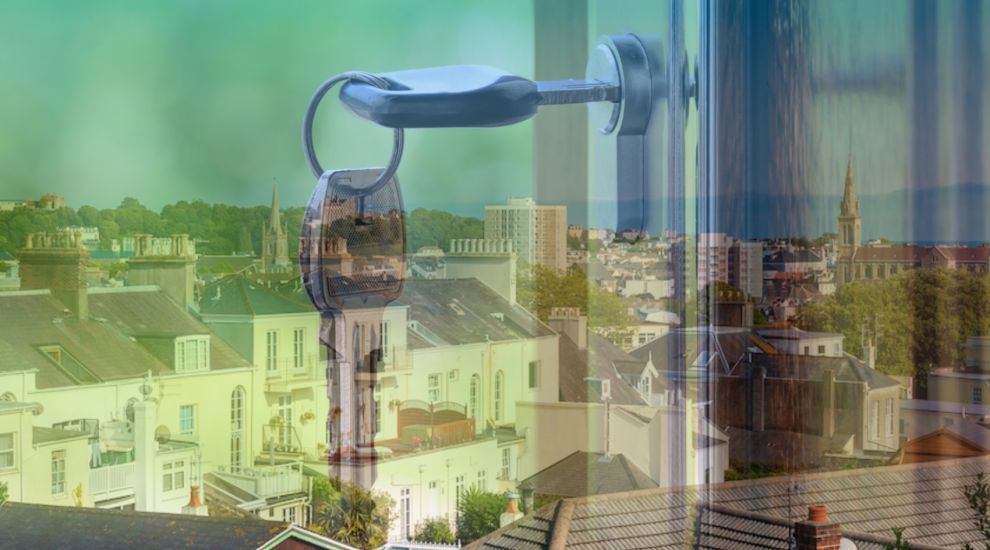


The number of Jersey and overseas taxpayers making money from renting property in the island shot up by more than 2,000 between 2012 and 2019, new figures have shown.
At the last count in 2019, the overall number of taxpayers declaring rental income was 6,740 - a rise of around 50% on eight years earlier when it was 4,470.
Of those, 6,000 were based in the island and 740 - around one in 10 - were based overseas.
The number of recorded overseas rental earners was 340 higher than eight years previously.
The figures were released yesterday by the Treasury Minister, Deputy Susie Pinel, in response to a written question from former Housing Minister Senator Sam Mézec.

Pictured: Overall, the number of landlords has gone from 4,470 to 6,740.
Notes accompanying the figures explained that they do not, however, include income from casual lettings, such as lodgers.
They also explained that the figures may not directly correspond to the number of landlords, as the definition of "taxpayer" includes married couples and civil partnerships, who may have separate property interests but pay tax together.
Included in the figures will also be a single source of property income counted against more than one taxpayer where the rental income is shared, such as between siblings.
Also, in the same time period, the number of landlords in Jersey increased from 4,070 to 6,000.
— Senator Sam Mézec (@SamMezecJsy) January 24, 2022
Proof that the claim that the introduction of minimum standards in the rental market leads to landlords leaving the market is false.
Commenting on the figures on Twitter, Senator Mézec said they were the proof that “the claim that the introduction of minimum standards in the rental market leads to landlords leaving the market is false”.
The number of new non-resident landlords may begin to decrease in the coming years after Economic Development Minister Senator Lyndon Farnham last week signed off on a formal decision that will prevent new flats from being sold as ‘share transfers’ – which allowed non-qualified people to purchase a property in Jersey.
Addressing the issues of rental stress and housing demand has been a hot topic among political parties as the election approaches.
In their first policy paper on housing released last week, the Alliance Party said regulation of the private rented sector “does nothing to address the key problem in Jersey of inadequate supply”, "but rather provides protection, albeit limited, to those already housed.”
Instead, the party identified the housing problem as being “one of affordability”.
Among the ideas they put forward, which they described as "neither new nor radical", were getting the Government to release more land to enable Andium Homes to develop 3,000 to 5,000 homes, a first-time buyer scheme for the open market, constraining demand by “strict enforcement of population policies” and building taller.
In response, Reform Jersey raised serious concerns over the “viability and consistency of those policies”.

Pictured: The Alliance Party's housing policy paper was drawn up by Party Policy Director Sir Mark Boleat.
Senator Mézec, the party leader, said many of the policies were “entirely at odds” with the party’s elected members’ voting records in the States Assembly.
“The gist of their overall policy appears to be to increase the supply of housing by reducing standards and attempting to control population growth; this rings hollow, due to the immense effort which Alliance States Members have put in recent years into opposing propositions brought to the States Assembly to provide more affordable housing,” he said.
“They say they wish to provide more support for first time buyers. Still, they consistently voted against increasing the provision of first-time buyers’ homes in the government-led developments on South Hill and the Waterfront. Most of their members also previously opposed allowing Andium to develop homes at Ann Court and Ville de Manoir.
“Instead, it appears they wish to cram more homes in town without improving access to amenities and open green space. We are already hearing feedback from our constituents who are extremely concerned over the impact this will have on their living standards.”

Pictured: Senator Mézec said of the Alliance Party's policies were “entirely at odds” with the party’s elected members’ voting records in the States Assembly.
Reform Jersey’s plan, meanwhile, include introducing European-style ‘rent stabilisation’ by banning inflationary rent increases and setting up a Rent Tribunal, making tenancies open-ended by default, a means-tested system to calculate social housing rates, and requiring 100% of the homes built on publicly owned land to be for affordable housing, instead of sold to investors.
Comments
Comments on this story express the views of the commentator only, not Bailiwick Publishing. We are unable to guarantee the accuracy of any of those comments.